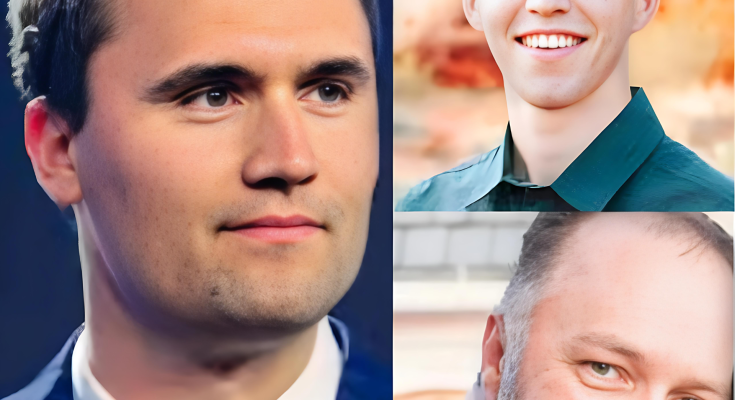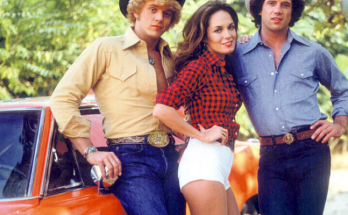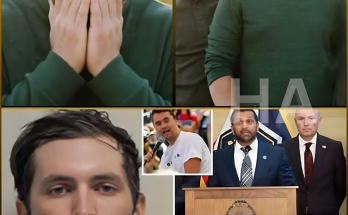When the world learned of Charlie Kirk’s sudden passing, grief spread like wildfire across continents. Tributes poured in from politicians, celebrities, and ordinary citizens who had been touched by his words, his energy, and his presence. But in the midst of this collective sorrow, an act of selflessness emerged—an act so extraordinary that it not only deepened the emotions of the tragedy but also reshaped the conversation about what compassion truly means in our time.
That act came from Tyler Robinson’s father, a man unknown to the public until the moment he decided to donate $1 million of his own money to the Kirk family. Yet it wasn’t just the donation itself that stunned the world. It was the sentence he spoke immediately afterward—simple, unadorned, and heavy with meaning—that moved millions to tears and ignited a wave of admiration across the globe.

It is not every day that a man turns away from a life-changing sum of money. For most, a million dollars represents security, freedom, and the chance to rewrite one’s destiny. But for Tyler Robinson’s father, the value of money paled in comparison to the value of human empathy.
In front of cameras, witnesses, and family members still drowning in grief, he handed over the sum to Charlie Kirk’s family. The gesture was so unexpected that those present reportedly gasped. Whispers of disbelief spread across the room. Was it possible that someone, in today’s world of greed and self-preservation, would give away such a fortune—without hesitation, without conditions?
The answer was yes. And it happened right before the eyes of those who will never forget that day.
To understand the magnitude of the gesture, one must first grasp what $1 million represents in the life of an ordinary man. For Tyler Robinson’s father, this was not loose change, nor was it money earned without sacrifice. It was a sum that could have been invested, safeguarded, or used to secure generations of his family.
A million dollars can buy a home, secure an education, erase debt, and offer comfort where once there was struggle. And yet, in the presence of a grieving family, it meant something entirely different. It became a symbol of solidarity—a declaration that no one should walk through darkness alone.
What made the act so powerful was not just the size of the donation but the fact that Tyler Robinson’s father refused to keep even a penny for himself. He could have justified keeping half. He could have rationalized using a portion for his own needs. Yet he chose the harder path: to give it all away.
“Most people dream of having their lives changed overnight,” said one witness. “But he changed someone else’s life instead. That’s what makes this different. That’s what makes it unforgettable.”
It was a sacrifice not just of money but of opportunity, and in that sacrifice lay the heart of his humanity.
And then came the moment that sealed this act into history. After handing over the check, after the applause, after the stunned silence, he spoke a sentence.
It was not long. It was not rehearsed. But it pierced the hearts of all who heard it:
“No family should ever feel alone in their darkest hour.”
The room went quiet. Some wept openly. Others bowed their heads. The Kirk family embraced him, unable to hold back their emotions. And those words, carried swiftly by social media, began to echo across the world.
Within minutes, the clip of the donation and his words began circulating online. Hashtags surged, videos spread, and millions of viewers watched and rewatched the moment. Comment sections filled with phrases like “I can’t stop crying”, “This is what humanity needs right now”, and “He gave away everything and asked for nothing.”
Celebrities reposted it. Journalists dissected it. Activists praised it. And ordinary people shared it in group chats, on timelines, and in whispered conversations, marveling that such acts still existed in a world so often clouded by selfishness.
The story quickly transcended borders. Newspapers in Europe featured it on front pages. Talk shows in Asia debated its meaning. Social media users in South America and Africa translated his words into their own languages, ensuring the sentiment traveled further than the money ever could.
One publication called it “a million-dollar miracle.” Another described it as “a reminder that generosity has not died.”
And yet, what struck people most was not just the money but the phrase itself—a universal truth captured in less than a dozen words.
Speculation soon followed. Was there more to the story? Did Tyler Robinson’s father have a personal connection to Charlie Kirk? Had their families crossed paths before?
Some suggested that Robinson’s father had once been helped by a stranger in his own time of crisis and was now paying it forward. Others wondered if his son, Tyler, had been inspired by Kirk’s words during his lifetime. While the exact motivations remain private, one thing is certain: the bond between generosity and grief created a moment that no one could ignore.
What made the sentence so powerful was its simplicity. In an age of slogans, soundbites, and endless noise, here was a phrase stripped to its core:
“No family should ever feel alone in their darkest hour.”
It was not political. It was not ideological. It was human. And in that humanity, millions found themselves reflecting on their own values, their own families, their own capacity for kindness.

The act has sparked discussions not only about charity but about what it means to live a life of purpose. Commentators asked: Would I do the same? Psychologists examined the impact of altruism in healing grief. Clergy members spoke of it in sermons. And in classrooms, teachers shared the story with students as an example of real-world compassion.
The ripples of one decision have touched arenas far beyond where the donation was made.
In the end, the story is not just about a million dollars. Money fades. What remains is the example—the idea that even in the darkest of times, one act of kindness can light the way for millions.
Tyler Robinson’s father may not have sought fame, but he found it. Not in the glare of cameras but in the hearts of those who needed to be reminded that goodness is still alive.
History rarely remembers the numbers. It remembers the words, the gestures, and the moments that strike at the core of human experience.
By giving away $1 million and uttering a sentence that will be quoted for years to come, Tyler Robinson’s father transformed a tragedy into a testament of compassion. He reminded us all that empathy is not measured in wealth but in willingness to share another’s burden.
And so, long after the money is spent, long after the news cycle moves on, his words will remain:
“Shock at the Memorial Mass: Cardinal Timothy Dolan Declares Charlie Kirk’s Mysterious Passing as ‘the Beginning of a Spiritual Revolution’…”D

The memorial was expected to be a quiet, solemn moment of reflection. Candles flickered, choirs hummed, and the heavy silence of grief hung in the air. Yet what unfolded in the cathedral that day was far from ordinary.
In front of thousands gathered to remember Charlie Kirk, Cardinal Timothy Dolan delivered a declaration that left both faithful and skeptics stunned: Kirk’s mysterious passing, he said, was not the end, but the beginning — the beginning of what he called a spiritual revolution.



